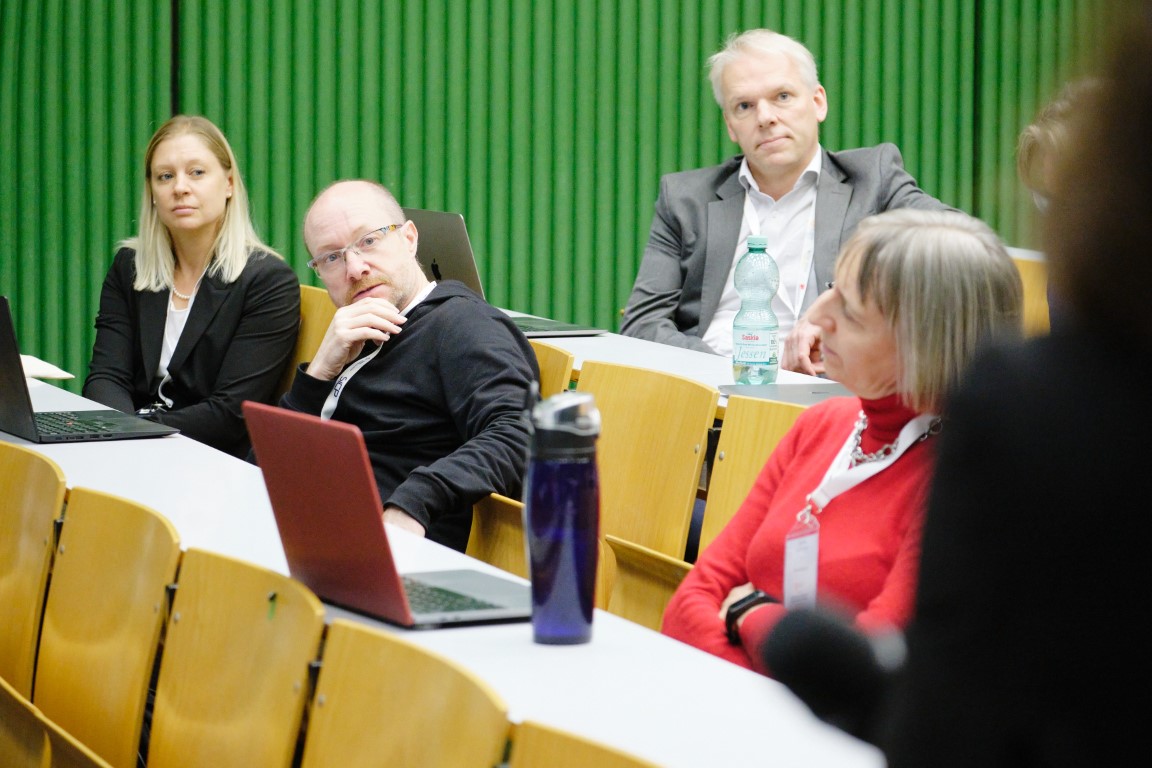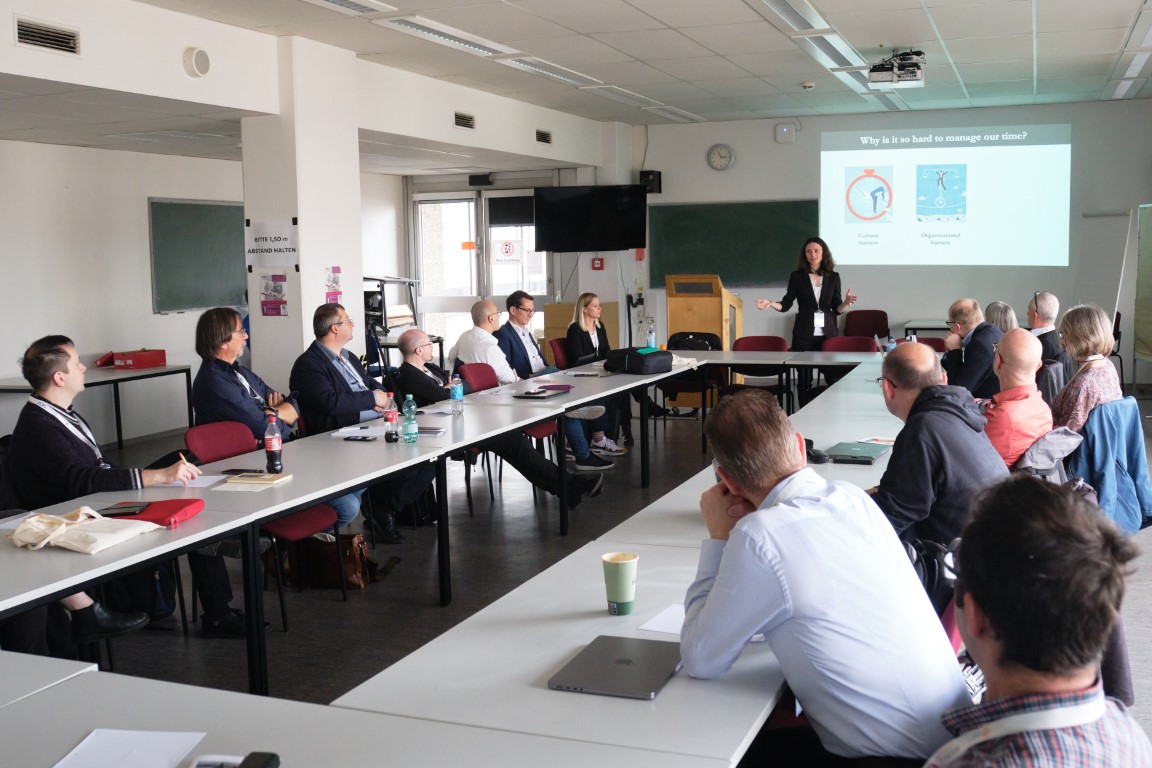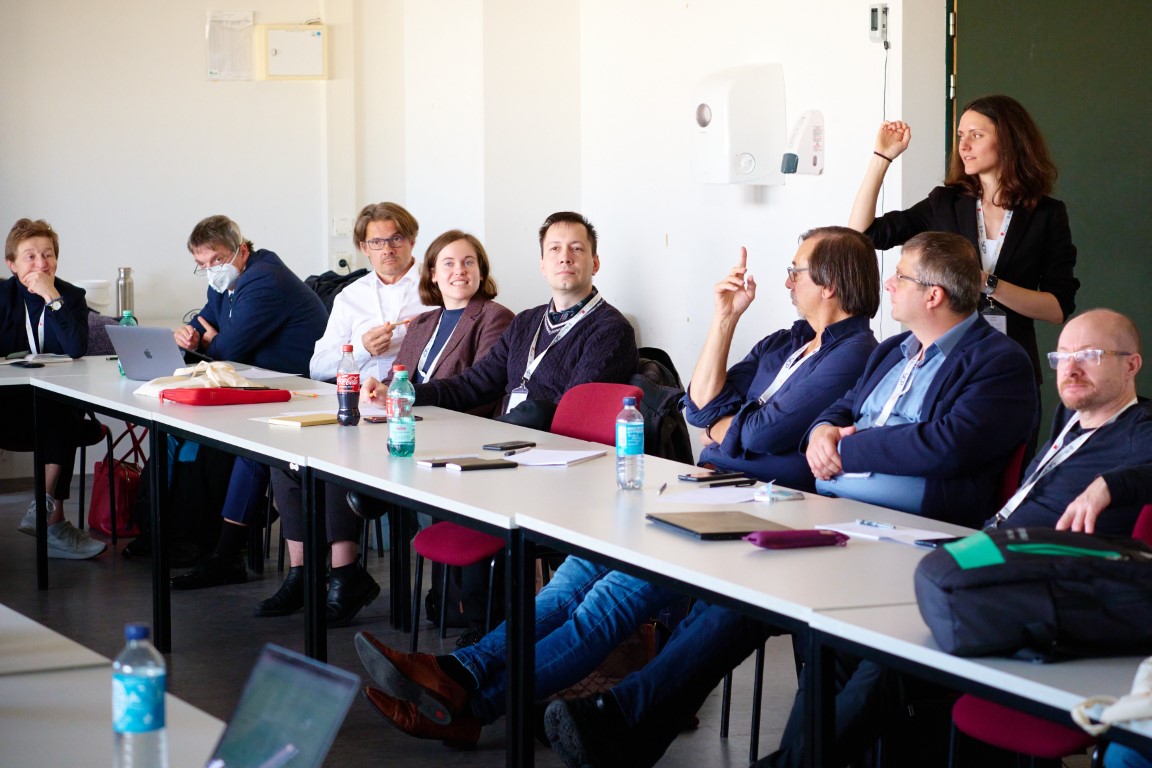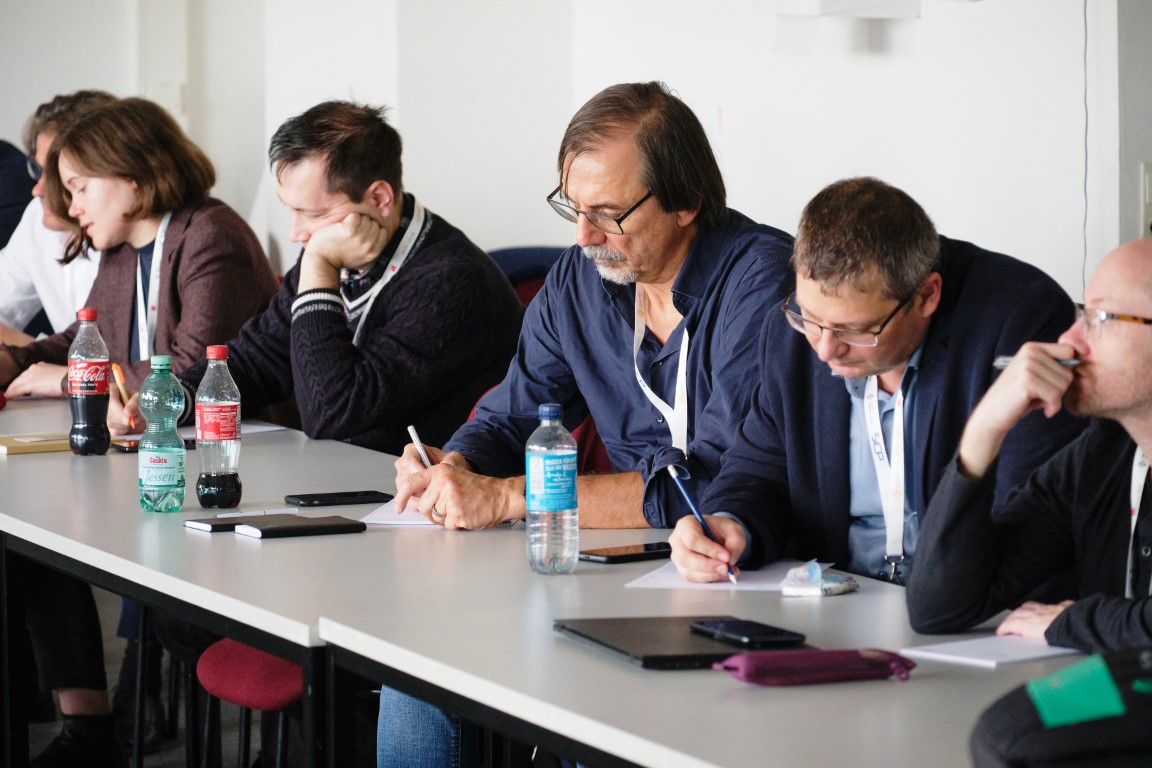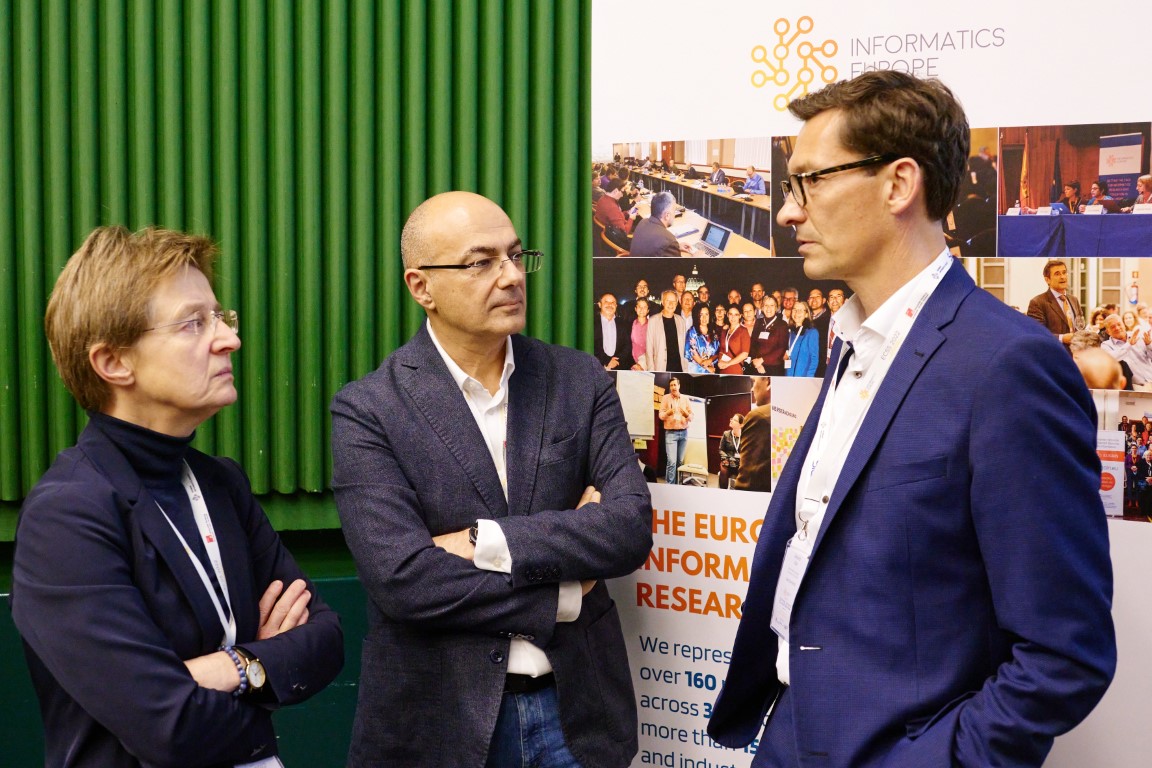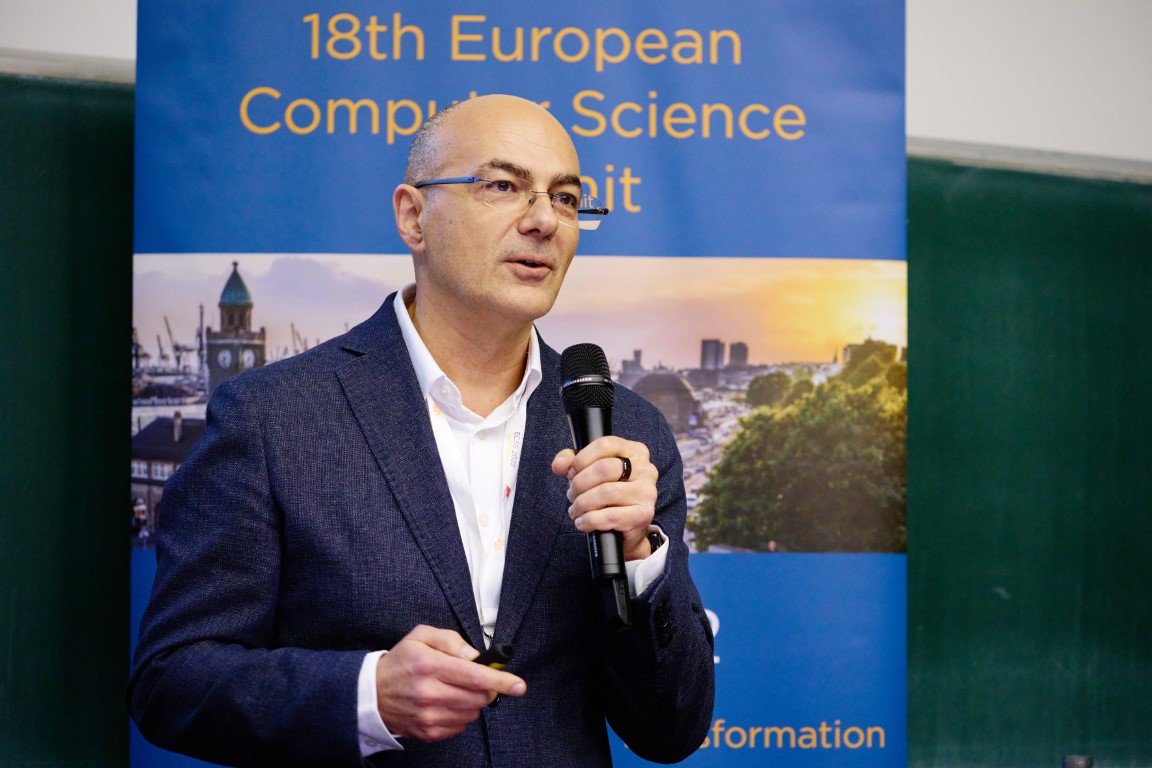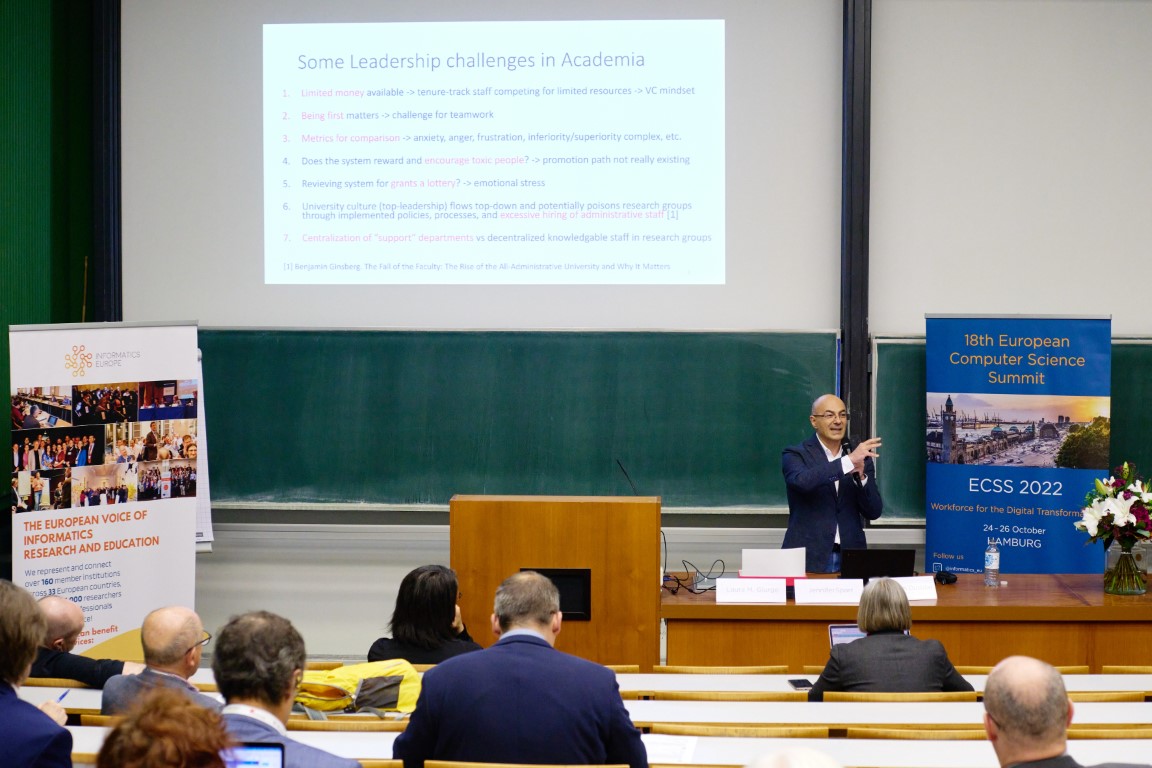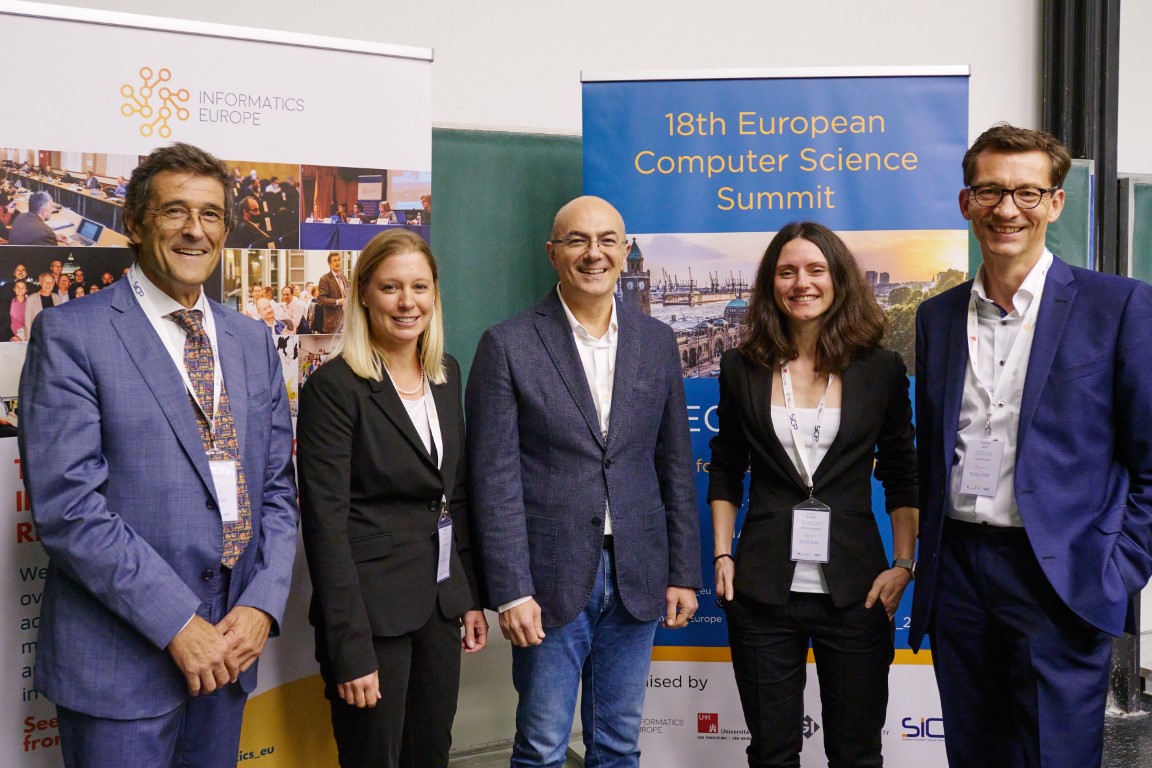Leaders Workshop
Every year Informatics Europe organises a special Workshop for Leaders of Informatics Research and Education, where academic and research leaders of Informatics universities, departments and research labs address specific challenges they encounter in their role. This year the workshop was held as part of the ECSS 2022 program on Monday, 24 October, opened to all participants and chaired by Harald Gall, University of Zurich, and Hannes Federrath, University of Hamburg.
The theme of the 2022 Leaders Workshop was
"Digital Leadership: Workplace Culture and Digital Dexterity".
Focus
Digitalization (aka Digital Transformation) creates a new outlook to work, productivity, and modernization in the workplace. Traditional ways of working are in question, modernization of processes and tasks are demanded, and job profiles are being revolutionized. Traditional models of why, how, or when we gather with colleagues for work are scrutinized. Mobile working is one of the key movements of this era, which comes with empowerment of employees and a continuous innovation in processes and tooling. This plays a major role for leaders in the university context, in particular for deans and directors, team or workgroup leaders, and researchers and teachers per se.
Good digital leadership in the context of a university and informatics departments is needed: one that is knowledgeable of digital assets and tools, that is willing to experiment and take risks, but one that is open for change while motivating. So digital skillfulness of university leaders spans a broad range of topics such as, for example, the ambition and ability to build digital and mobile work environments or to generate added value for teaching and learning when working in presence or mobile. “High digital dexterity in an organization increases the likelihood of successful digital transformation by 3.3 times. .. however, only 16% of all leaders have high digital dexterity” [Harvrd Business Review 2021].
A good workplace culture is significant for any organization, in particular at times of digital transformation and even more for university and department leaders. Enthusiasm and passion of leaders for new ways of working are needed to cope with the increasing discussion about the meaning of work. Challenges such as ‘how many days of work per week’, ‘fewer work days in favor of family/friends or health’, ‘no longer moving leisure to retirement’, or ‘not only working till 70+ but with continuous recreation’ - researchers can give some answers, and university and department leaders can adopt good practices. Informatics departments face similar if not the same challenges and deans and directors of those need to provide answers for mobile working, the added value of presence for teaching and research, and the cultural changes that need to be actively managed.
Challenges to be addressed
This year’s Leaders Workshop addressed leadership for all academic and research leaders of informatics departments from the perspective of digital dexterity and the need for a healthy and productive culture in the workplace:
- How to generate a motivating and enriching culture at the workplace?
- How to make mobile working a part of the solution for the new generation workforce?
- How digital leadership can actively foster digital dexterity both for faculty and students?
- How digital leaders can devise processes for onboarding, retention, and continuous productivity of the workforce in their respective university settings?
- How digitalization effects in Higher Ed can be actively addressed for the future of work?
Workshop Style
The Leaders Workshop featured a mix of impulse presentations, active discussions, peer’ knowledge sharing, exchange in smaller peer groups, and consolidation and presentation of the results to all participants, with ample time for interaction, discussion, reflection, and Q&A.
Due to the wide scope, the many facets, and the many challenges of the theme, this workshop would only be able to touch some of the key points. However, we expected that the discussions would be illustrative enough to provide workshop attendees with some good take-home messages and good practice examples to further enhance their digital dexterity as leaders.
Confirmed Speakers
- Schahram Dustdar , TU Wien, Austria [Slides]
- Laura Giurge, London School of Economics and Political Science, UK [Slides]
- Jennifer Sparr, University of Zurich, Switzerland
Workshop Highlights
In the morning, Laura Giurge shared some of her latest research on the future of work, with an interactive and engaging talk with the audience. Topics were around the downsides of flexible work hours, the well-being implications of how we engage with technology at work, the productivity and happiness boost of carving out time to pursue our most important work tasks and the critical role that leadership support plays in changing how we work, and last but not least, how leaders who acknowledge well-being along productivity can lead more financially resilient organizations. These talks formed the basis for the afternoon sessions to be followed in a hands-on style.
In the first afternoon session, Laura Giurge together with Jennifer Sparr invited the audience to reflect on how they allocate one of our most precious resources – time – and to analyze one of the most salient tensions in leadership, namely the tension between needing to be flexible with one’s schedule while also needing to plan one’s time to accomplish core leadership tasks. Giurge kicked off the session with some insights on the factors that prevent us from managing our time well, from the acceleration of the pace of life, to fragmented time, and future time slack (e.g., the belief that we have more time in the future than we do today, leading us to overcommit to more future tasks than we can achieve). Participants then engaged in a mini time-audit exercise where they analyzed whether their schedule reflected their most important goals. Then, participants engaged in the polarity map exercise where they dissected the flexibility vs. planning tension and learnt how to move away from thinking about this tension as an either/or problem to thinking about it as a both/and: leaders need and can be both flexible and strict with their time.
Concluding the workshop, Schahram Dustdar addressed digital leadership from an ecosystem perspective in the second afternoon session. He described leadership as an ecosystem, in which everything relates in some form to everything with varying levels of sensitivity. Such a model can be adopted for leadership and university leaders who play a crucial role in rebuilding the notions of inter-university teams, or organizational structures such as departments or universities. He discussed challenges of the research landscape and how disruption is needed to adapt to the rising expectations of leadership in the digital age.
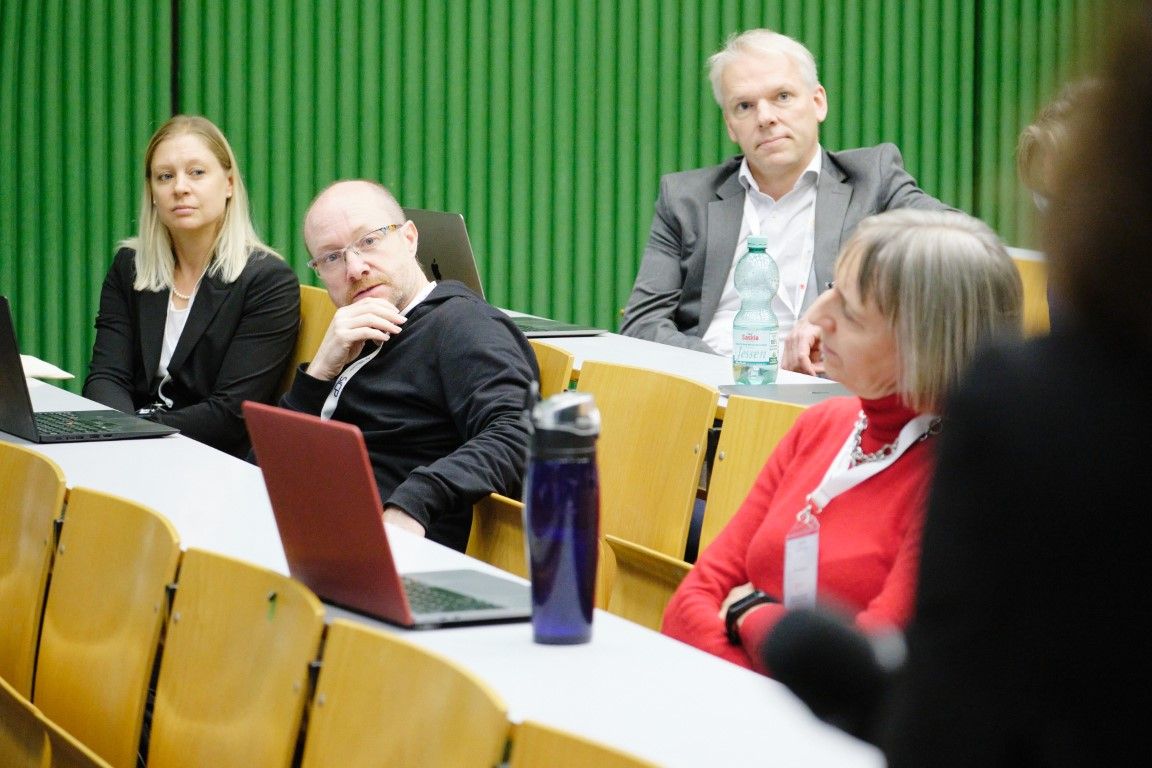
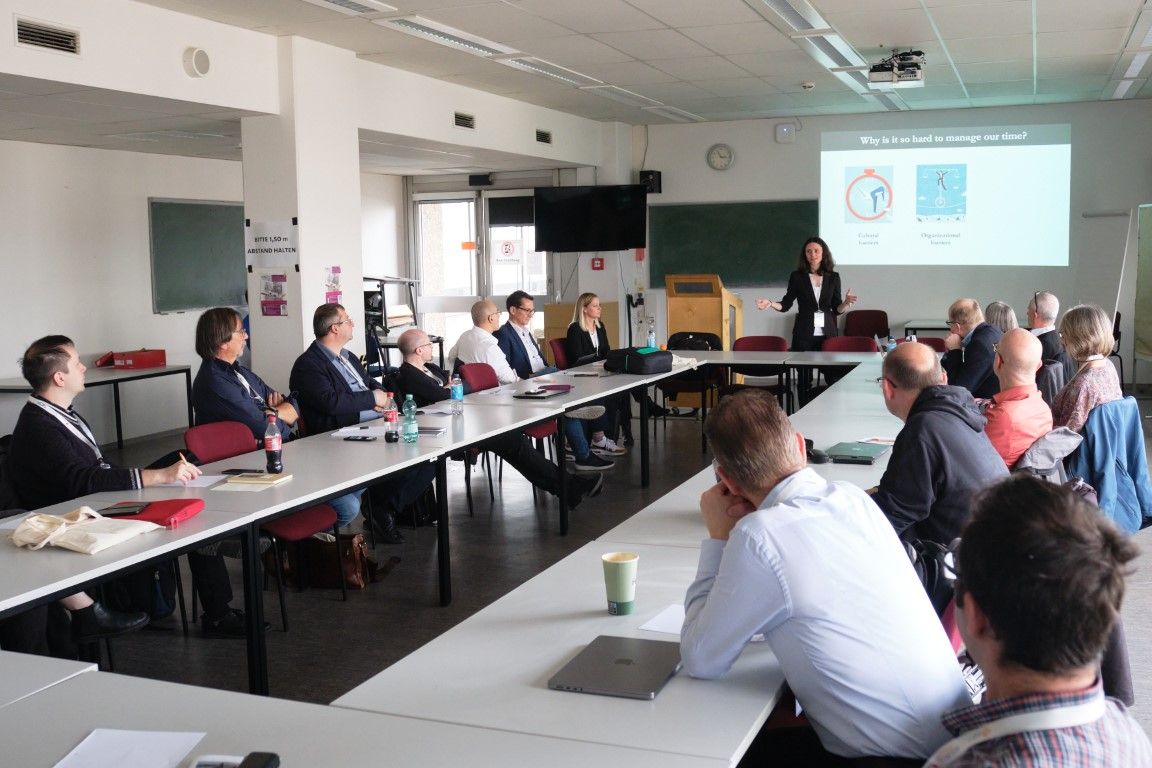
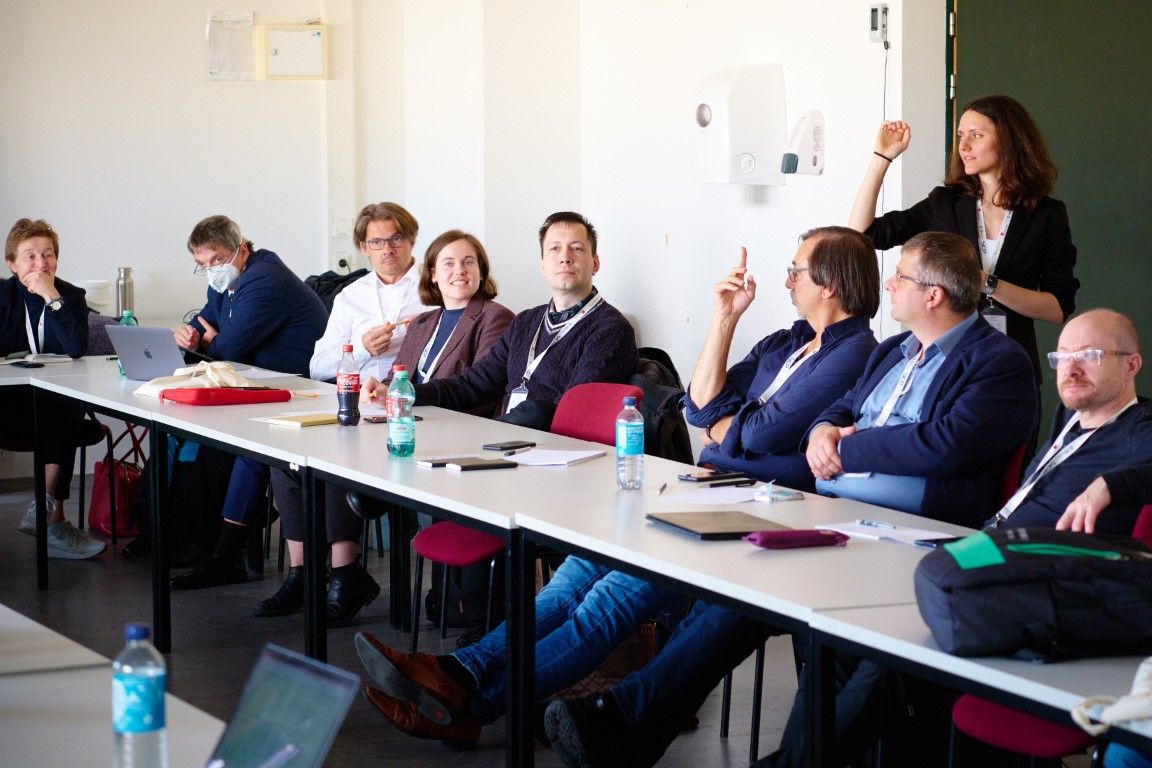
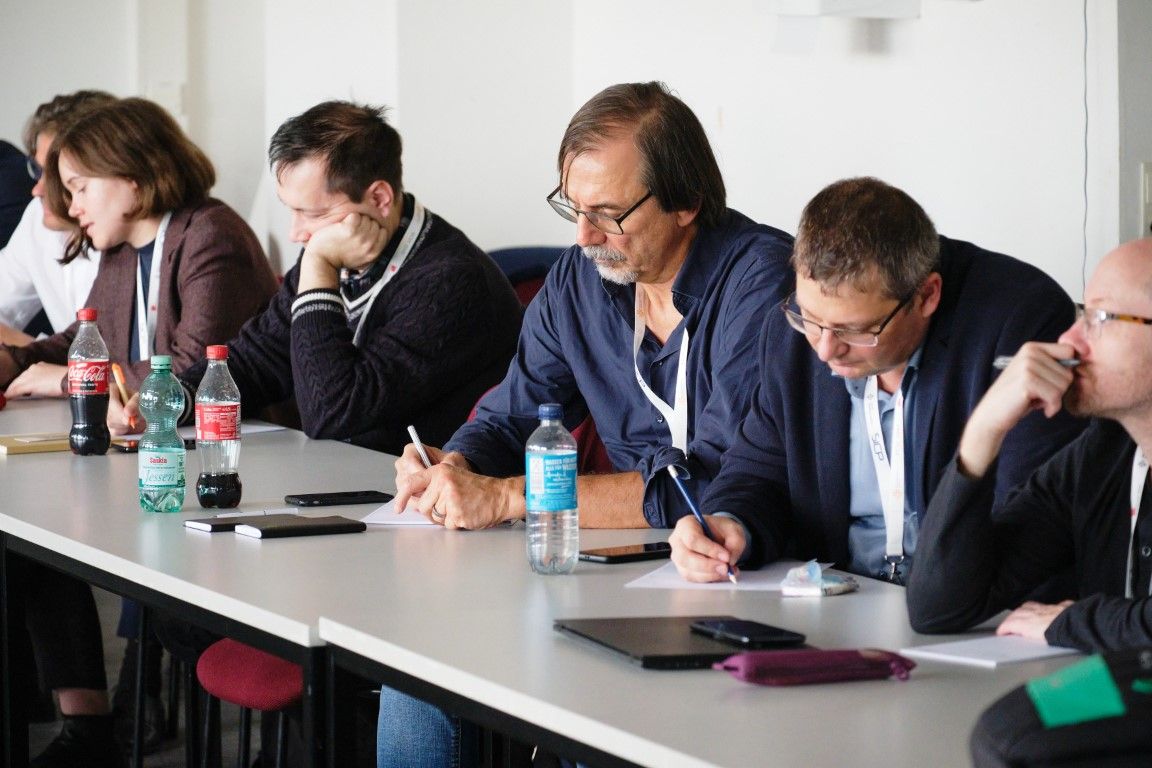
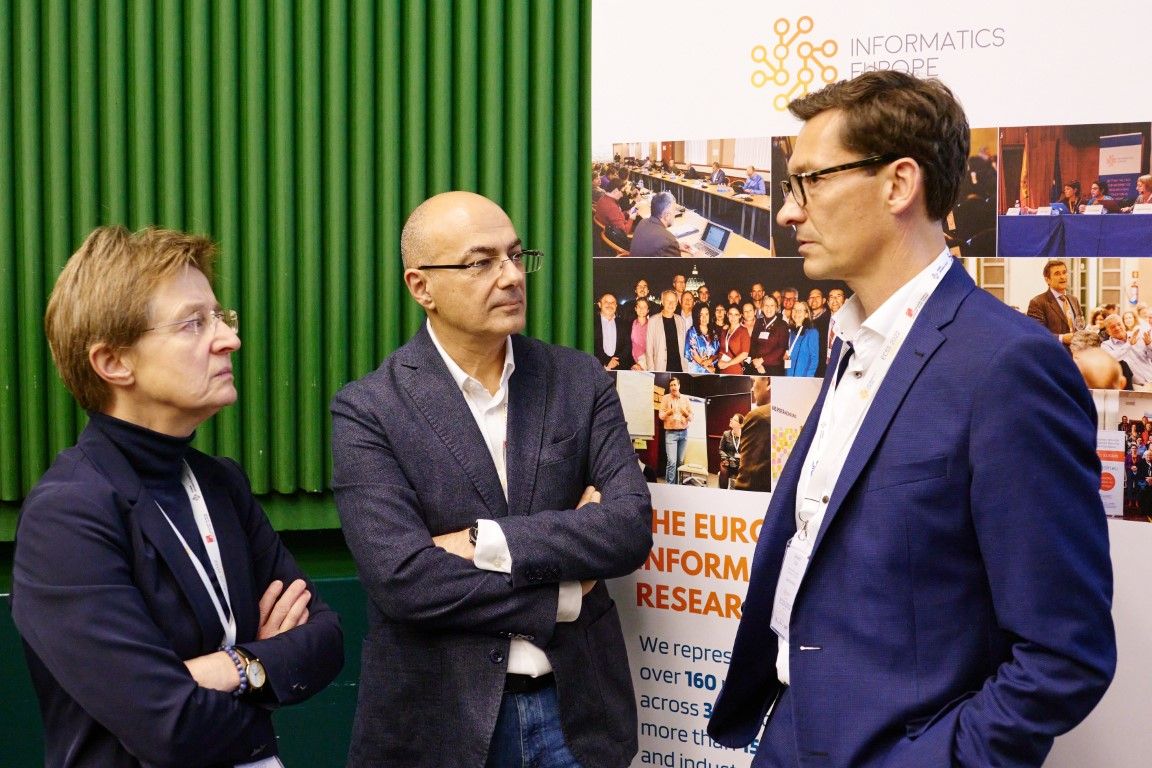
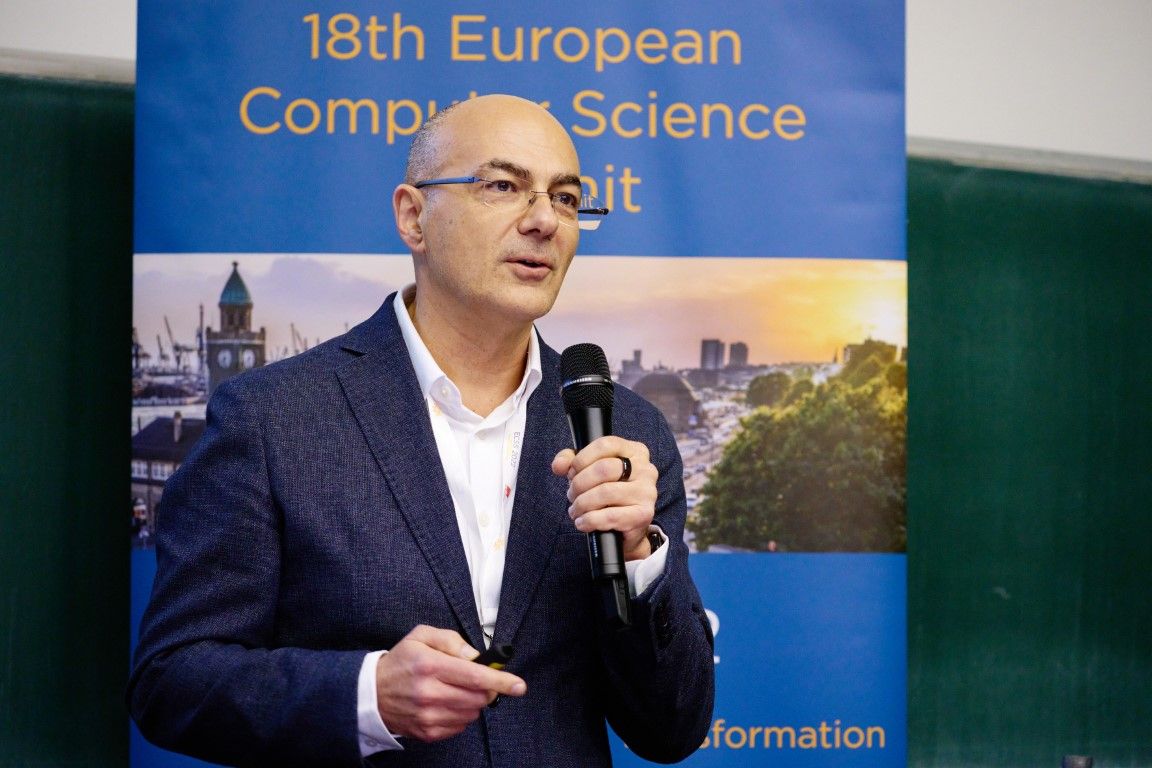
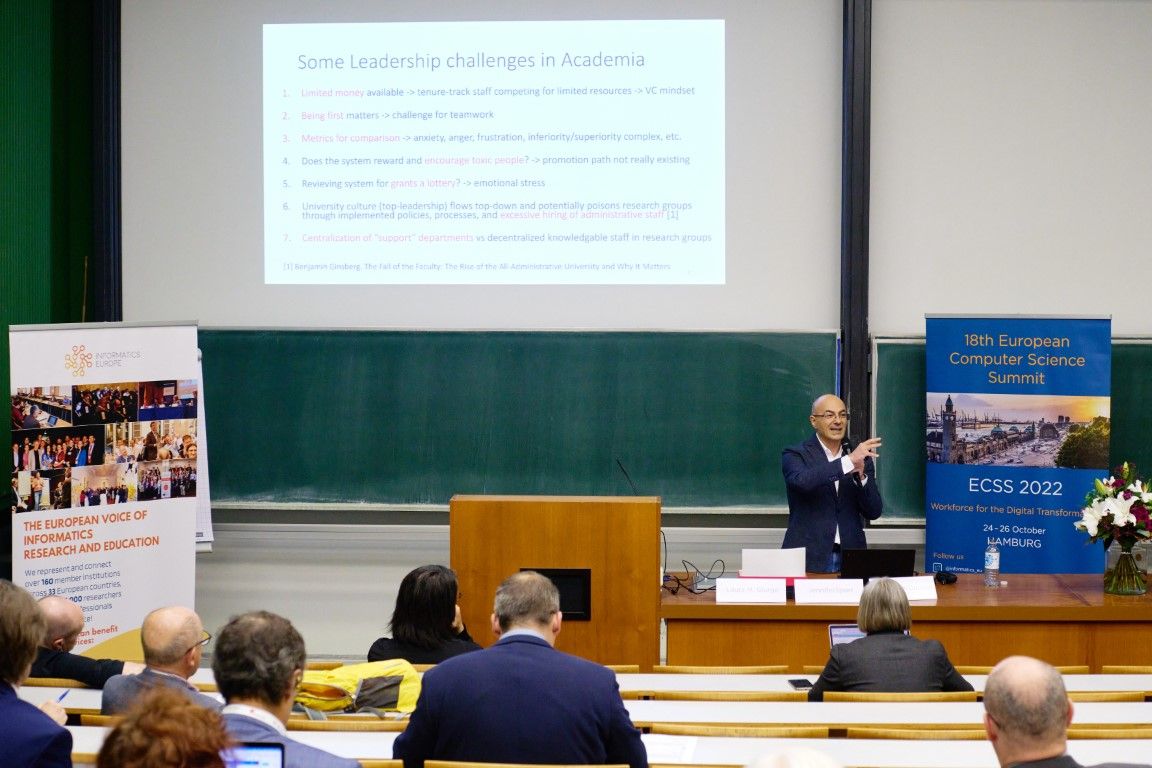
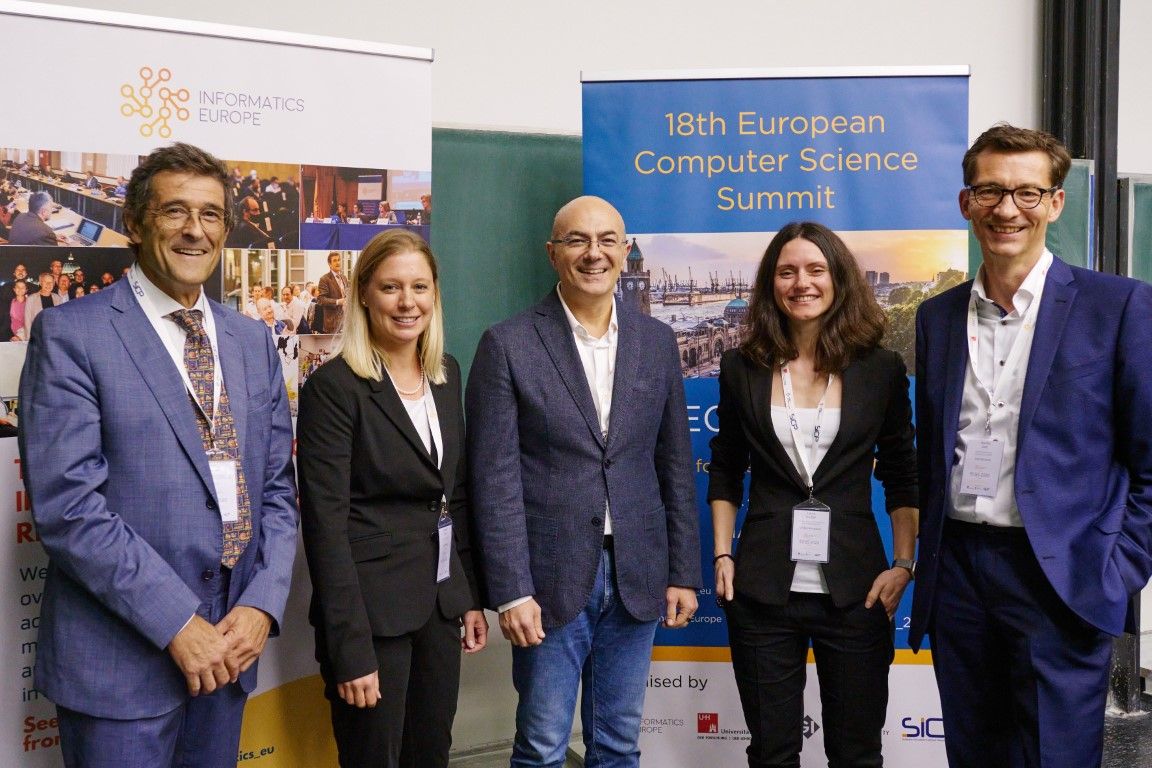
*Please note that the photos above are better viewed when applying zoom out.
Presentation slides are available to download under the workshop schedule here.

